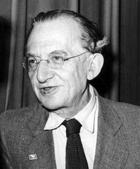
György Lukács was born in Budapest Szegredi the April 13, 1885, within a family belonging to the Great Hungarian financial bourgeoisie. In 1906 he received his doctorate at the Faculty of Philosophy of Budapest and from 1909 he attended courses in Berlin and Heidelberg, where he established contact with Georg Simmel, Max Weber and Ernst Bloch, among others. By 1917 he returned to Budapest and founded, along with Karl Mannheim, Erwin Szabó, Béla Fogarasi and Arnold Hauser, the "Free School of Science of the Spirit". In late 1918 he joined the Hungarian Communist Party and participated in the Hungarian Soviet Republic and People's Commissar of Public Instruction and political commissar of the Fifth Division of the Red Army. Between 1919 and 1933 he lived in exile in Vienna and Berlin; then moved to Moscow, where he lived until 1944. He returned to Budapest, in whose university he held a professorship in aesthetics; He was a member of parliament and played a central role in cultural policy. From 1949, he was attacked by Stalinist different organs and in 1951 was forced to leave political life. In 1956 he participated in the revolution led by Imre Nagy; when the uprising was crushed, he was deported to Romania, expelled from the party and become the victim of a smear campaign. On his return, in 1957, gave the task of reshaping Marxism as a necessary means to overcome both Stalinism and bourgeois democracy. He died on June 4, 1971.Lukacs has a central role in twentieth century philosophy. Among his most notable works include Theory of the Novel (1914-1915), History and Class Consciousness (1923) - work that founded the Western Marxism - Young Hegel (1948), Goethe and His Age (1950), Realistic German nineteenth century (1950), The peculiarity of the aesthetic (1963) and for an ontology of social being (1984-1986)





